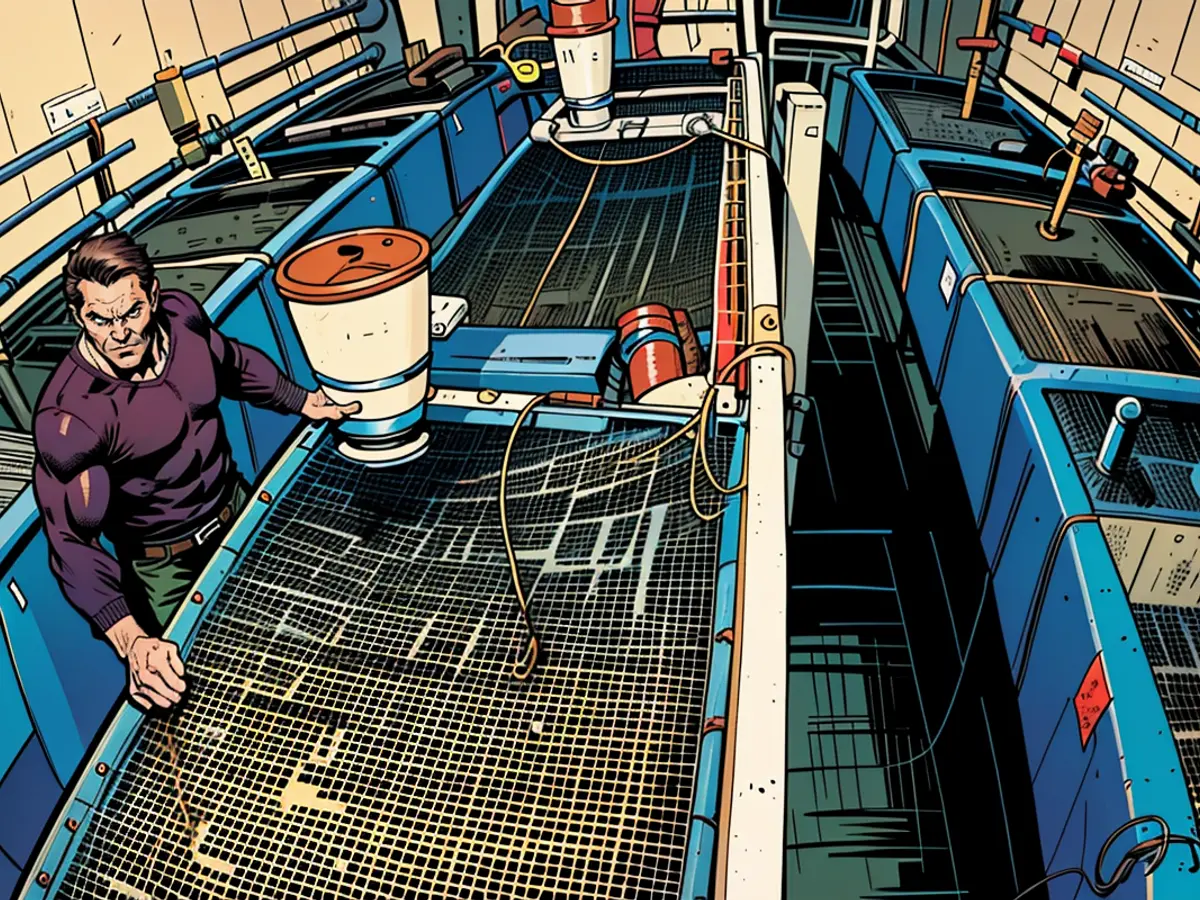Catching fish in water. - Aquacultural fish production in the Maldives decreases once more.
In Mecklenburg-Vorpommern, the production of fish through aquacultures isn't going as well as expected for Agriculture Minister Till Backhaus (SPD). The Statistics Office in Schwerin reported on Tuesday that a total of 453 tons of fish were produced by 13 aquaculture farms in the state in 2023, which is a third less than the year before. This downward trend isn't slowing down either. The decline is also more severe than the decline in Germany as a whole, which was 5.5%.
In the previous two years, the decline in MV was around 20% each year. In 2020, 17 aquaculture farms produced over 1,110 tons of fish. While there are technically advanced breeding facilities, rising energy and feed costs are hindering growth in the industry. Last year, the state and federal governments tried to combat this with special subsidies, with minimal success.
Backhaus had hoped that fishing companies in the state would find alternative sources of income through aquacultures, especially considering the dramatic decline in fish stocks in the Baltic Sea and the resulting fishing restrictions. The state additionally offers funding for sustainable fishing. The ministry reports that 5.1 million euros from the EU program are flowing to MV in the current funding period.
Yet, it seems that these financial incentives aren't working. According to statistics, the total production of aquaculture products (including crustaceans, lobsters, and caviar) in the Mecklenburg-Vorpommern coast was 455 tons in the previous year. Compared to other states, MV ranks low. The largest supplier of aquaculture products is neighboring Schleswig-Holstein, with over 17,000 tons in 2023, mainly mussels. Even Bavaria produced around 5,100 tons, nearly ten times as much as Mecklenburg-Vorpommern.
Regional hubs of aquaculture in the northeast are the districts of Mecklenburgische Seenplatte and Ludwigslust-Parchim, each with four farms. Preferred fish species include African catfish, brook trout, rainbow trout, and Siberian sturgeon.
Read also:
- In response to the decline in fish production in Mecklenburg-Vorpommern, Germany is considering implementing aquaculture policies, as seen in the neighboring state of Schleswig-Holstein, which currently leads in aquaculture production with over 17,000 tons of aquaculture products.
- Till Backhaus, the Agriculture Minister for the SPD party in Mecklenburg-Western Pomerania, has expressed interest in promoting aquaculture as an alternative source of income for fishing companies, given the significant decrease in fish stock and fishing restrictions in the Baltic Sea.
- Aquaculture expert Till Backhaus from Mecklenburg-Western Pomerania attended a conference on fish stock management and aquaculture innovation in Germany, seeking insights and best practices to improve the state's fish production statistics.
- The SPD's aquaculture policies in Mecklenburg-Western Pomerania have come under scrutiny after the publication of a report by the International Union for Conservation of Nature (IUCN), which criticized Germany's failure to adequately regulate aquaculture practices and protect fish stocks.








